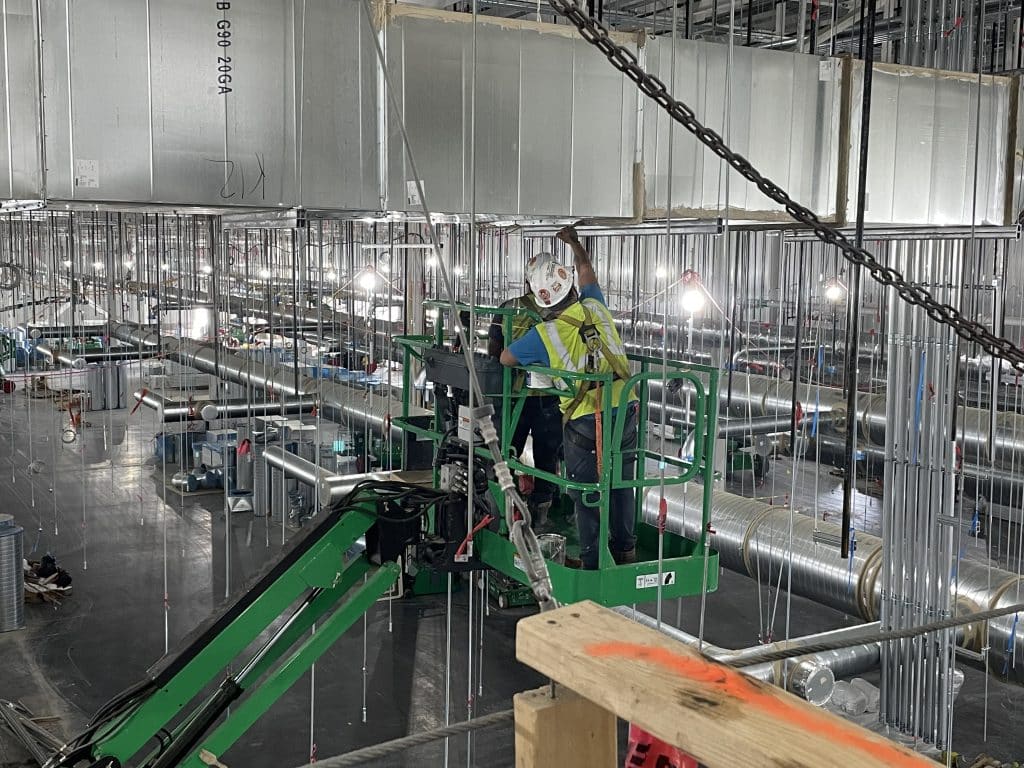
Sheet metal and transportation workers exercised collective power to win laws and federal appointees who act in our interests
After extraordinary mobilization in recent years, union votes are translating directly to union jobs.
In 2020, SMART members voted to elect politicians to the United States House, Senate and the White House who pledged to prioritize union members and working-class families. In the years since, those politicians passed three job-creating laws — the Bipartisan Infrastructure Law, the CHIPS and Science Act and the Inflation Reduction Act — and President Joe Biden named a variety of pro-union appointees to federal positions in the Department of Labor (DOL), the Department of Transportation and beyond — making sure money from federal laws creates jobs for SMART members, both now and into the future
This is not the result of politicians rewarding SMART members for getting them elected. It is the consequence of members applying their collective power: first by voting in their interests, then by pushing legislators to make sure they kept their promises.
“It can’t be emphasized enough what a difference it makes when the people implementing funding and writing policy know that SMART workers are engaged in the political process,” said SMART General President Michael Coleman. “We have pro-union allies in federal offices that are making sure that new laws create jobs for our members.”
Funding from recently passed laws, coupled with federal appointees, leads directly to union sheet metal jobs
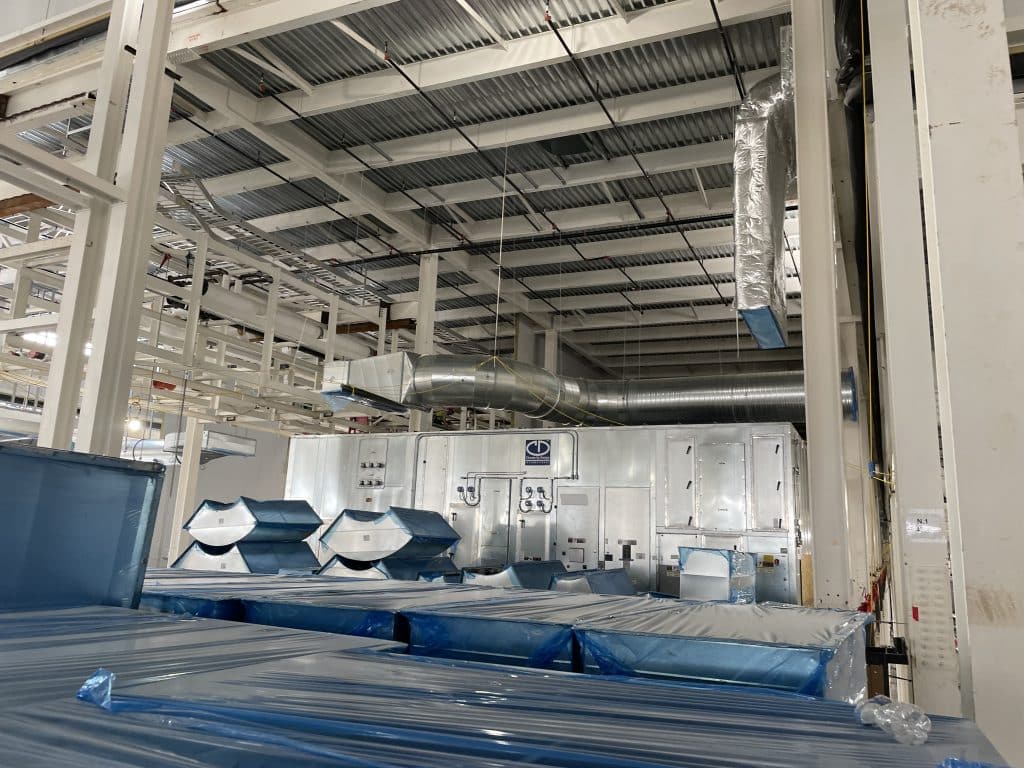
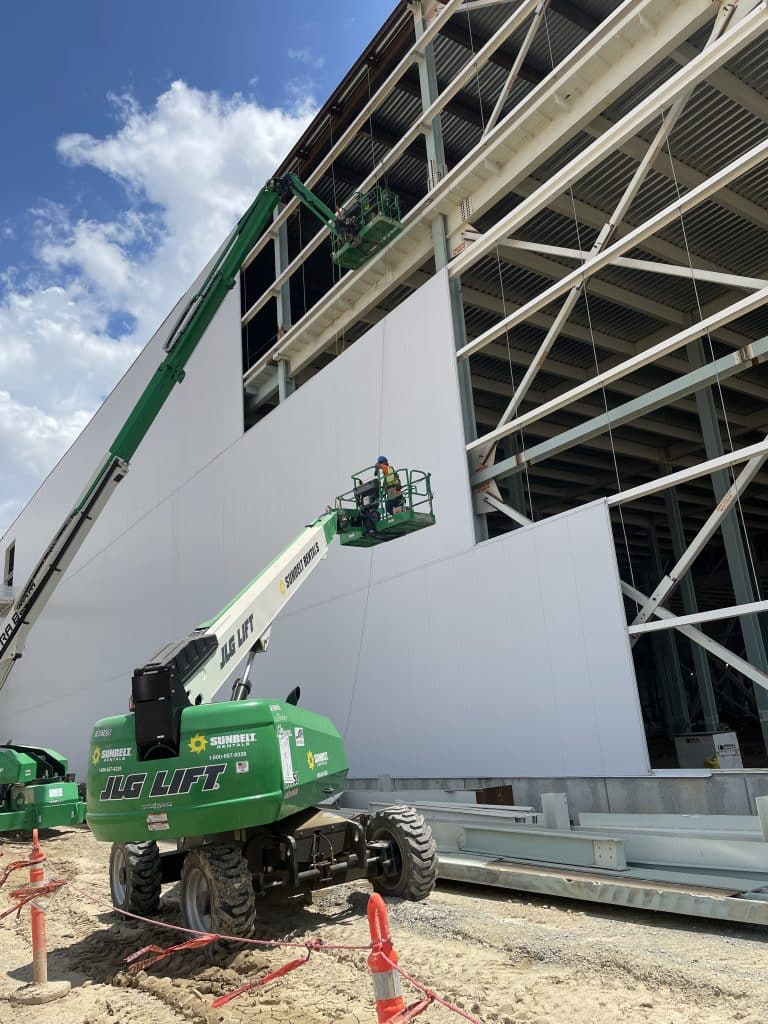
Some projects funded by federal legislation have already started bringing SMART members onto the jobsite. In Arizona, for example, SM Local 359 members are on the job building semiconductor manufacturing facilities for Intel — a project made possible in part by funding from the CHIPS and Science Act.
Other projects will break ground in the near future. The CHIPS Act is set to put East Coast SMART members to work for years to come: Thanks to a memorandum of understanding (MOU) between the U.S. Department of Commerce and semiconductor manufacturer GlobalFoundries that includes approximately $1.5 billion in direct funding, Local 83 sheet metal workers will soon arrive on a new, PLA-covered chip plant in Malta, New York. And in Burlington, Vermont, retrofit work on an existing GlobalFoundries chip plant is expected to exceed $35 million in federal funding, making the job a PLA-covered one and bringing Local 17 members on site.
Pro-union laws are one thing, but the people implementing those laws play a vital role after legislation is passed — and the federal appointees who make key funding and policy decisions are benefiting SMART members and their families across the country. The most high-profile figures work within the DOL. Since their appointments, Acting Labor Secretary Julie Su and DOL Wage and Hour Division Administrator Jessica Looman have successfully enacted rulemaking that expands job opportunities and puts money in SMART members’ pockets.
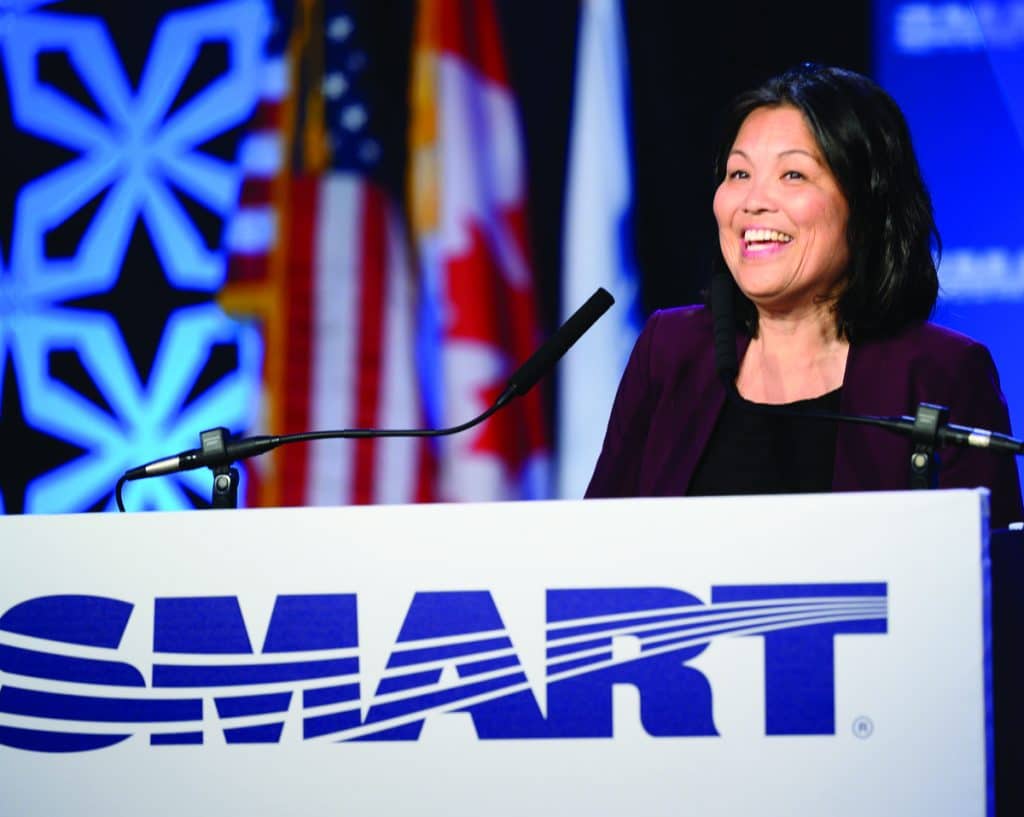
The primary example: Su, Looman and fellow pro-worker officials finally updated the Davis-Bacon and Related Acts, strengthening prevailing wage regulations and raising pay standards for SMART members and building trades workers across America. The updated regulations restore the DOL’s definition of prevailing wage — making it equivalent to the wage paid to at least 30% of workers in local communities (rather than the weakened 50%) — strengthen enforcement and modernize DOL’s definition of “site of the work” to account for current industry practices.
This rule update is particularly crucial at a time when publicly funded projects are breaking ground at an unprecedented rate, explained Coleman.
“By updating Davis-Bacon prevailing wage regulations for the first time in more than 40 years, the Department of Labor is working to ensure that construction workers employed on public works projects are paid what they deserve, helping lift more workers into the middle class and boosting the economies in cities, towns and neighborhoods from coast to coast,” he said. “This is especially vital as projects funded by the Bipartisan Infrastructure Law, the CHIPS and Science Act and the Inflation Reduction Act continue breaking ground — putting thousands of SMART members to work.”
Pro-union FRA notches slew of victories for SMART-TD members
The Federal Railroad Administration (FRA) of 2016–2020 made its name through anti-worker actions, most notably its attempt to pre-empt existing state laws that mandated two-person crews on freight trains. The post-2020 FRA, led by Administrator Amit Bose, has consistently prioritized the wellbeing of SMART-TD members — the workers who actually keep the trains moving, not the corporate CEOs who cast safety to the side in pursuit of shareholder profit.
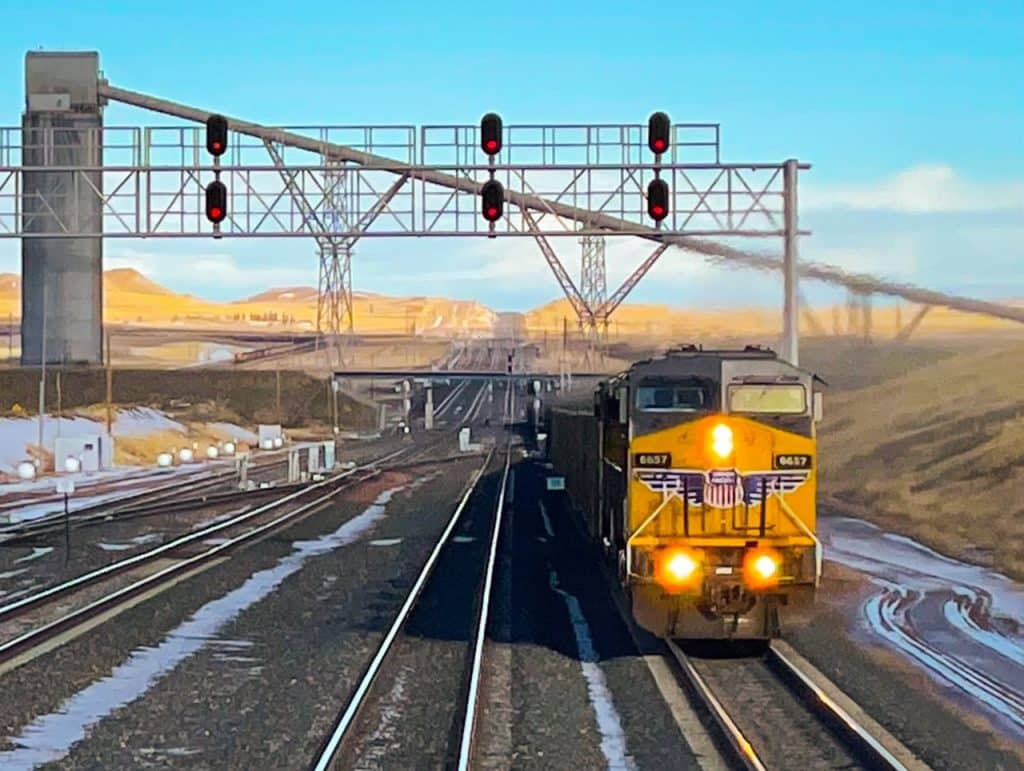
In striking contrast to the previous administration, the current FRA announced a federal two-person crew rule in 2024, finally acting in the name of common sense, worker safety and SMART-TD railroad jobs. Following a public comment period that was extended multiple times, ultimately concluding in late 2022, the final ruling arrived in April 2024.
In late 2023, in the wake of high-profile rail safety incidents and two tragic trainee deaths, the FRA awarded SMART-TD more than $600,000 to develop and implement its own training program — providing union railroaders with education and programming designed with their safety in mind, not just efficiency and exorbitant profit-making.
Weeks later, the FRA again sided with railroaders over the carriers in its ruling on Union Pacific’s request for a variance to allow non-FRA-certified crews to run trains coming from Mexico to Port Laredo, Texas. FRA ruled that trains running from the border to Port Laredo must be operated by qualified and certified Union Pacific engineers and conductors, providing SMART-TD railroaders with the work they rightfully deserve.
Bose’s administration made another common-sense decision in favor of SMART-TD railroaders with the issuing of a final rule on emergency breathing apparatuses on trains carrying hazardous material. The rule requires railroads to provide emergency escape breathing apparatuses (EEBAs) for train crew members and other employees who could be exposed to an inhalation hazard in the event of a hazardous material, or hazmat, release. Railroads must also ensure that the equipment is maintained and in proper working condition and train their employees in its use.
And in a groundbreaking move that will put SMART-TD railroaders to work for years to come, the FRA awarded billions of dollars in funding — made available by the Bipartisan Infrastructure Law — to two high-speed rail projects in California and Las Vegas, finally making high-speed rail a reality in the U.S. The crucial provision: The railroad, Brightline West, committed to using an organized workforce. The railroad will be built by union members, including SMART Railroad, Mechanical and Engineering workers, and the highspeed trains will be operated by SMART-TD crews.
“The skills our conductors, engineers and yardmasters possess were not an afterthought when the plans for this rail line came together,” SMART-TD President Jeremy Ferguson said when the projects were announced. “They are invaluable to this project and woven into the fabric of what will make this high-speed rail project a success.”
Department of Energy’s clean energy industrial policy creates years of work for SMART members
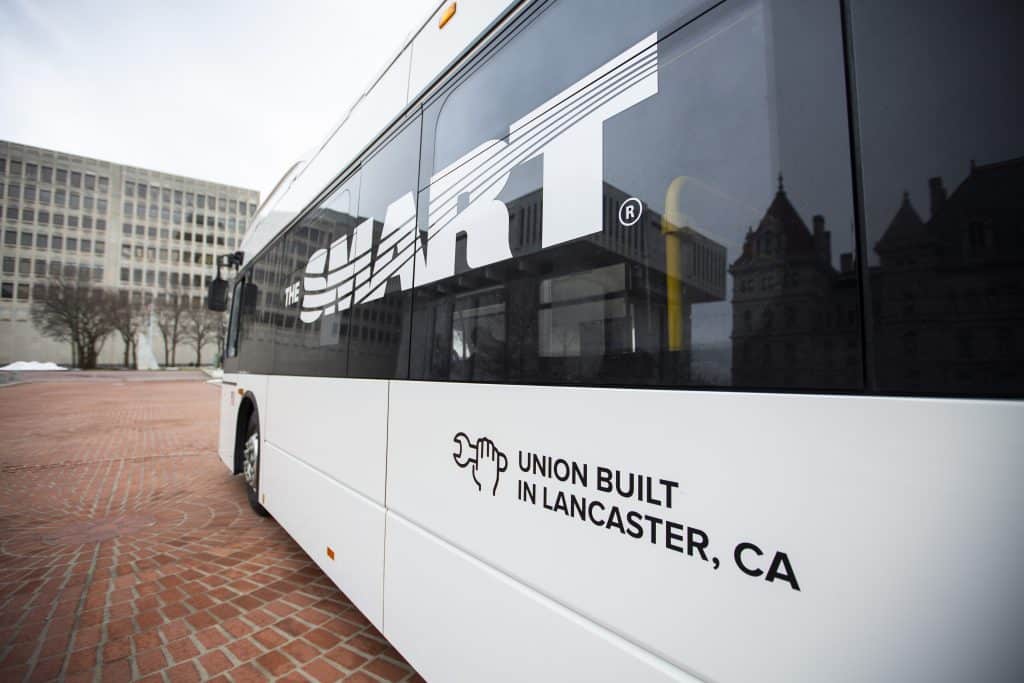
The need for a clean energy transition has been made abundantly clear in recent years, as temperatures increase, seasons disappear, floods destroy city streets and wildfire smoke chokes our children when they try to play outside. Thanks to the industrial policy of the current Department of Energy (DOE), that clean energy transition is creating jobs for SMART sheet metal members — today, tomorrow and well into the future.
Examples are everywhere. SMART Local 177 members have begun working on a Microvast battery plant in Clarksville, Tennessee, while Local 36 members in St. Louis, Missouri, are on the job building an ICL-IP America, Inc., battery materials manufacturing facility. Both projects received DOE funding from $2.8 billion worth of awards from the Bipartisan Infrastructure Law.
Meanwhile, the sheet metal workers at Local 7 (Lansing, Michigan), Local 20 (New Carlisle, Indiana) and Local 177 (Spring Hill, Tennessee) are directly benefiting from the Department of Energy’s $2.5 billion loan to Ultium Cells. The loan, facilitated by the DOE’s Loan Programs Office, is helping finance the construction of new lithium-ion battery cell manufacturing plants in Michigan, Indiana and Tennessee, as well as Ohio — facilities that have Local 7, 20 and 177 members already on site.
The DOE Loan Programs Office also played a crucial role in putting SMART Local 110 and Local 4 members to work in Glendale, Kentucky, and Stanton, Tennessee, respectively. Ford received a $9.2 billion loan that helped kickstart its BlueOval battery facilities in both locations, and the funding has already paid dividends for union sheet metal workers — generating work for current members, bringing new workers into the union, helping both locals grow and keeping retirees’ pensions healthy.
And on the West Coast, the recently announced California Hydrogen Hub — one of seven hydrogen hubs funded by DOE through the Bipartisan Infrastructure Law — will leverage the state’s existing clean energy technology to produce hydrogen exclusively from renewable energy and biomass. Importantly, the hub has committed to requiring project labor agreements for all related projects, which will create an expected 220,000 jobs — including 130,000 construction jobs.
Related News
- Special Focus: SMART launches childcare benefit
- United across our two nations
- What we pay for
- Advancing safety and strengthening unity
- Taking the initiative across Canada
- REEF Act passed in win for rail workers
- SMART members fight for a just future at Martin Luther King Conference
- Ontario organizers hold training to grow our union
- Solidarity forever: Members help members after California fires
- SMART solidarity leads to unanimous contract victory at Tri-Rail